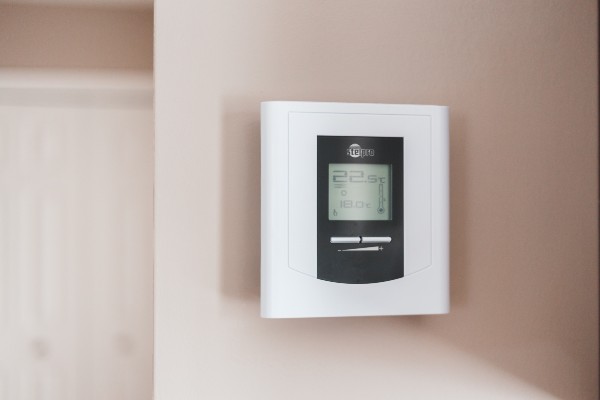BMS engineering is a discipline that overlaps with various other parts of the engineering industry, such as control theory and electrical engineering. It’s a really exciting branch of engineering that brings together a range of practical design, software development and system installation, and is a great role for those who enjoy working with a range of other engineers and designers.
In this article, we take you through a BMS engineer role description, the common responsibilities of the job, how to become a BMS engineer and some of the skills that will benefit you in the role.
What is a BMS Engineer?
A BMS engineer is an engineer who is responsible for the system that controls a building’s environment. They will design, install, manage and commission this system, which will be unique to the building and the needs of the people or organisation who use it.
A BMS is a kind of control system that is computer-based. It connects lighting, ventilation, security, heating, water and fire systems through a central system that can be monitored and allows you to control each individual component from one place.
BMS engineers can come from a range of backgrounds including control systems engineering, but may also have started their careers as electricians or technicians for heating and lighting systems. They may also go by other job titles, including Building Automation Engineer, Heating Controls Engineer, or Building Energy Management System Engineer (BEMS).
The systems that BMS engineers work with are typically found in commercial or industrial buildings, but some domestic residences also have a BMS. They’re more common in large buildings like office blocks or shopping centres, but are also often installed in smaller commercial spaces.
What does BMS mean?
BMS is an acronym that stands for building management system, which is an electronic system that monitors the various mechanical or electrical equipment installed in a building. BEMS is also sometimes used to refer to the same thing and just stands for building energy management system, which is a BMS that specifically focuses on monitoring a building’s energy output.

What does a BMS Engineer Do?
A BMS engineer’s job has a lot of variety, from design elements to testing procedures and the physical process of installation. Here are some of the typical BMS engineer roles and responsibilities:
- Responding to client briefs by designing new BMS systems to meet requirements
- Designing control panels for a BMS, starting with architectural plans and creating panel drawings
- Producing design documents for BMS
- Using software to design digital versions of building management systems based on project documentation
- Assisting with the graphic design of BMS software
- Producing documentation to instruct other engineers or users on how to interact with the BMS
- Ensuring that any BMS software or equipment aligns with relevant safety and quality standards
- Conducting site surveys before installation of BMS takes place, or after a system has been installed to check that it is functioning properly
- Commissioning new BMS software to ensure that it works properly
- Maintaining existing building management systems by fixing errors, running tests and updating software
- Repairing a range of equipment and machinery involved in BMS
- Regularly engaging with industry research, developments and trends to ensure that their work remains relevant and cutting-edge
As well as the general BMS engineer role, there is a range of more specialist roles that fall under the job title which have their own specific responsibilities.
BMS Commissioning Engineer
A BMS commissioning engineer focuses on the installation of a new building management system. They will work with a team before the installation to ensure that all equipment is ready, conduct risk assessments before the procedure, and provide technical support to other engineers to make sure that the installation happens smoothly and safely.
BMS Service Engineer
A BMS Service Engineer is responsible for the continued maintenance and upkeep of a building’s management system. They may be hired as the service engineer for a specific location, or they may be a service engineer for a company that manufactures BMS equipment and travel around the country servicing these.
BMS Design Engineer
What does a design engineer do in the BMS sector? A BMS design engineer is an engineer who works specifically in the design stage of building management systems. They may not be involved in the manufacture and installation of the systems they create, but will work with engineers from other disciplines to design the control panels, software and graphics for a BMS.
BMS Project Engineer
A BMS project engineer will be brought in to act as the technical project manager for projects that involve the development of a building management system. They will have experience in designing and installing BMS but also have the management and leadership skills necessary to direct other members of a team and act as the point of contact between clients, stakeholders and directors and the rest of the design team.
How to Become a BMS Engineer
BMS engineering is not a discipline that you necessarily need a university degree for. Because the role involves the installation and maintenance of systems that connect with things like lighting, heating and security equipment, those who have undertaken apprenticeships, diplomas or work experience in electrical technician roles will also have the right skills to become a BMS engineer.
Many engineering candidates choose to study for a degree at the start of their career, and this can benefit you if you want to become a BMS engineer. Most universities require at least a C or above in Maths and English, along with an A or A* in Maths, Further Maths or Physics.
There are no specific university courses in BMS engineering, so if you’re looking for relevant BMS engineer qualifications, it is recommended that you study a relevant discipline such as Control Systems Engineer, Electrical or Electronics Engineering, Mechanical Engineering, Computer Engineering or Applied Physics. Many engineering qualifications include an integrated Masters, and whilst this is not necessary for a successful career in BMS engineering, it may help your job prospects and lead to a higher starting salary as a graduate.
Many BMS engineer jobs are suitable for graduates and trainee engineers, so you can go straight into a specialist role at the start of your career. You may begin as part of a team of BMS engineers or a system technician, and then work your way up to a designer or project engineer position.

BMS Engineer Skills
There is a range of skills that employers will be looking for when hiring BMS engineers and which you may see featured in BMS engineer job descriptions. Some of the key skills needed in the role are explained below.
Diligence
When developing building management systems for particularly large spaces, a BMS engineer could be left working on the same project for months at a time. Similarly, installing a brand new system in a big building can be a time-consuming task if you are overseeing proceedings or completing the work yourself.
A BMS engineer needs to be diligent in their work and show a commitment to finishing the job to a high standard. They need to give the same level of focus to all their tasks and maintain concentration throughout, however long the process.
Attention to Detail
Attention to detail is important no matter what kind of task a BMS engineer is completing. When studying building plans, they need to ensure that they notice every aspect of each system present so as not to miss anything from the plans for the BMS. Drawing up control panels and design documents requires high levels of accuracy, as does designing software that will dictate the safety and efficiency of a building.
Having good attention to detail is also a useful skill when installing a BMS, as this will make it easier to spot any potential mistakes and quickly identify where issues may be coming from.
Communication
A BMS engineer has to work with a wide range of different people. Having good communication skills is essential, whether they’re in charge of other engineers or technicians or being asked to relay information back to more senior members of a team.
Written communication skills are also very important, as there is a lot of documentation associated with building management systems that engineers will have to produce. This needs to be coherent to ensure the system is used and installed properly, and is a skill that the majority of employers will prioritise when hiring for the role.
Self-Motivated
BMS engineers often work as part of a team, but need to be able to go off and work on their own where necessary. When tasks are delegated, engineers need to be confident in meeting deadlines and delivering work without help or supervision, particularly if they are the only BMS specialist on a project.
BMS service engineers in particular need to be self-motivated, as they spend a lot of their jobs carrying out maintenance work individually.
Adaptability
As previously mentioned, there are a lot of different aspects to the role of a BMS engineer. Engineers need to be adaptable to meet the demands of the role, which not only involves having a variety of skills but also being happy to jump from one job to another where needed.
Adaptability is also an important part of problem-solving, which BMS engineers will often have to do. Being able to change your approach to success will mean that issues get overcome much faster, allowing for a higher quality of work to be completed on time.
Perspective
If you work on a BMS project from start to finish, you will go from looking at a system on a component level to watching it be installed in a building and then commissioning the system as a whole to ensure success. Being able to take a step back and look at the big picture when needed, as well as having the ability to zoom in on a particular detail or problem, is an excellent skill for a BMS engineer to have.
Innovation
Innovation is an important part of any engineering role, as it allows for new approaches and technologies to be developed and progress to be made in the industry. BMS engineers are often involved in finding the best ways for buildings to be as energy-efficient as possible, which is incredibly important in our world at the moment, and innovation will allow for new systems to be developed that can have a positive impact on energy use in a wide range of buildings.
Relevant Technical Knowledge
Finally, an essential quality that a BMS engineer needs is relevant technical knowledge for the role. This may involve an understanding of the electrical equipment involved in various systems, practical experience designing software and control panels, experience installing new BMS systems and an understanding of the commissioning process when updating a building’s management system. Some of this will be gained from the initial qualifications that an engineer needs, whereas other knowledge will come from practical work experience before the role begins.
Summary
BMS engineering brings in theory from a range of different discipline backgrounds, and is a really exciting area of the industry to be working in if you are interested in finding ways to improve the efficiency of systems that are a key part of our everyday lives.
If you’re an employer in the embedded systems industry that is looking for specialist help with hiring BMS engineers, or an engineer looking for an electronics engineering role such as this one, get in touch and find out more about how our recruitment agency can help you.







